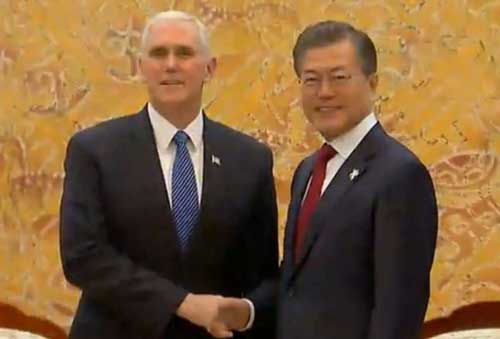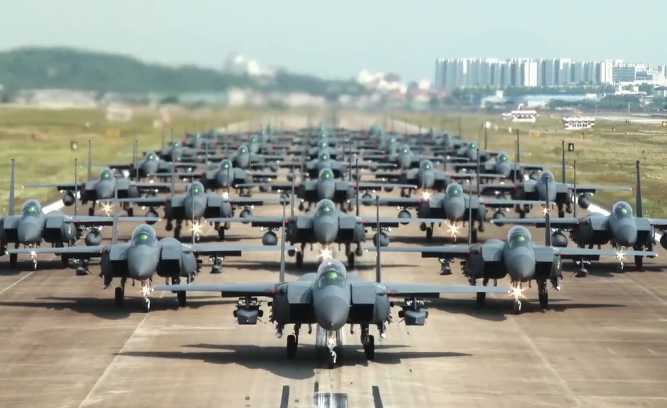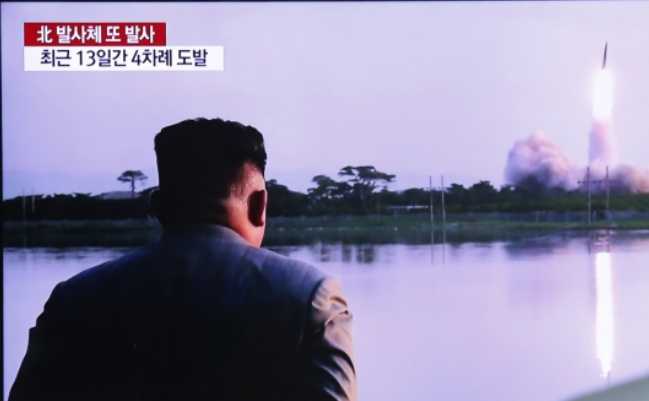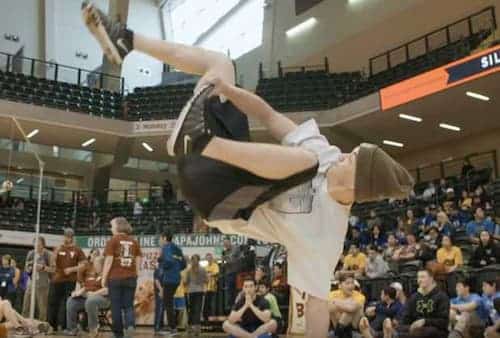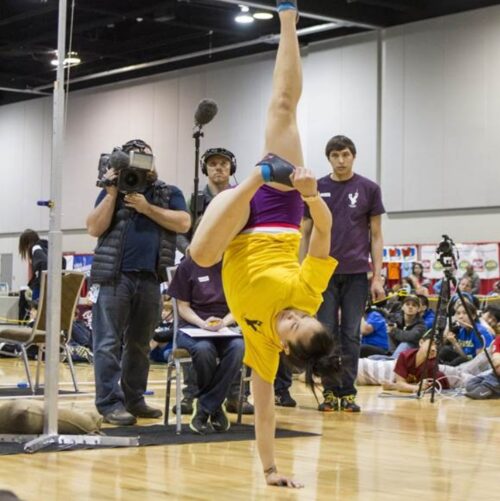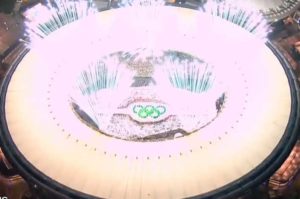
SEOUL, SOUTH KOREA – After a one-year pandemic delay, the Tokyo Olympics began Friday with a scaled back but still celebratory opening ceremony.
Held amid tens of thousands of empty seats in Tokyo’s Olympic Stadium, only about 900 dignitaries and other officials attended the event because of COVID-19 precautions.
The opening ceremony, themed “United by Emotion,” may be one of the most normal elements of what figures to be the most unusual Olympic Games ever.
Familiar elements such as fireworks, drones, musical performances and a cauldron-lighting ceremony set the stage for the Games. Athletes will march and wave their countries’ flags during a smaller than usual and socially distanced parade of nations.
“A minimum of 1 meter and possibly 2 meters of social distancing is required, and they have to wear masks all the time,” said Hidemasa Nakamura, a Tokyo 2020 organizing committee official.
The Japanese public is broadly opposed to holding the Games, fearing they will worsen Japan’s already deteriorating pandemic situation.
Tokyo on Thursday reported nearly 2,000 new COVID-19 infections – a six-month high for a city that is already under a state of emergency.
In the capital, public viewing areas have been canceled. Bars have been asked to not serve alcohol. The torch relay, an Olympic mainstay, was replaced by online lighting ceremonies.[content id=”79272″]
So far, 106 people associated with the Olympics have tested positive for the virus. That includes several athletes, whose Olympic dreams were cut short. Still, organizers have played down fears of a cluster infection breaking out in the Olympic Village, saying the overall infection rate is very low.
“There is no one place that has no virus cases. That is impossible. Therefore, some cases will emerge. What is important is the ability to identify positive cases quickly and isolate them, and we believe that this is implemented well to hold a safe and secure Games,” Nakamura said.
Though seemingly every Olympics sees public discontent, the Tokyo Games have been ridden by an impressive number of negative headlines.
Besides the COVID-19 fears, the Games also went massively over budget. Earlier this year, the head of the Tokyo organizing committee resigned following outrage over his comments that women talk too much.
This week, the opening ceremony director, Kentaro Kobayashi, was fired after footage emerged of him mocking the Holocaust in a 1998 comedy sketch.
The Games are so toxic that major sponsors are backing away. Earlier this week, Toyota, one of Japan’s most recognizable brands, announced it would not air any Olympics-related TV commercials in Japan and that its top officials would not attend the opening ceremony.
“As someone who’s studied the political history of the Olympics, these really jump out at some wild times in terms of Olympics land,” said Jules Boykoff, a former Olympic athlete and author of several books on the Games.
Despite the controversy, organizers hope that the focus will shift to sports once the competition begins.
According to Gracenote, a data analytics company, the United States is projected to lead all countries with 96 medals, including 40 gold medals. It would be the seventh consecutive Summer Olympics for the U.S. to lead the overall medal count.
[content id=”52927″][content id=”79272″]

